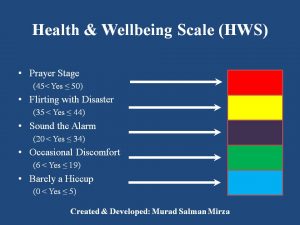
Progressive organizations are increasingly gaining sensitivity to the health and well-being of their workforce, with mental health coming to the forefront as a substantial concern in recent times since conventional focus used to be on providing support and coverage for physical ailments. A key driver of deteriorating mental health is the pressure associated with staying relevant and competitive in the Digital Age in order to sustain a viable and productive career lifecycle that can robustly stand up to dynamic changes in the marketplace for talent.
However, intrinsically driven/highly ambitious professionals frequently tend to marginalize such concerns as they focus on career aspirations by embracing stressful conditions and diving into time-consuming complex, and challenging assignments to impress influential sources of power with their professional abilities. This often leads to hiding/suppressing the knowledge from employers about existing conditions that might put careers in jeopardy, especially where there is a proliferation of skilled labor ready and willing to take their place at a cheaper cost to the employer. Consequently, the future of organizations is being precariously leveraged upon the apprehensive professionals who are actively gambling with their health and well-being due to the fear of being discovered as a costly investment despite working for a seemingly caring employer. The following tool has been developed for professionals caught in such a dilemma to facilitate an honest self-appraisal to take timely, appropriate, and effective remedial actions for not only themselves but, more importantly, for the sake of their loved ones:
- Family (Your bonds with the family)
- Are you on bad terms with most members of your family?
- Do most of your family refuse to help you during challenging times?
- Is there frequent conflict in your family?
- Do you tend to avoid family gatherings?
- Are you frequently approached by various members of your family for support, e.g., financial, legal, health, resolving children-related issues, arbitration between feuding family members, etc.?
- Friends (Your bonds with the friends)
- Do you lack any close friends?
- Have most of your friends refused to help you during challenging times?
- Are you frequently involved in resolving problems faced by your friends?
- Do your friend circles include friends from the workplace and personal life?
- Are your friends actually ‘acquaintances’ rather than friends?
- Personal and Professional Networks (Your bonds with the wider humanistic circle)
- Are you primarily an introvert by nature?
- Do you like to develop relationships with other people based upon reciprocity?
- Are you generally unwilling to forgive those who have wronged you in the past?
- Are you naturally suspicious of people who are trying to reach out to you?
- Are your personal and professional networks a source of stress for you?
- Self-Makeup (Your bonds with yourself)
- Are you often engulfed in self-reflection regarding stressful matters, e.g., personal health issues, delicate financial situation, precarious career trajectory, traumatic memories, yearning for a meaningful life, etc.?
- Do you have difficulty in saying, ‘No,’ to people?
- Do you have difficulty in saying, ‘Yes,’ to people?
- Are you able to work long hours without adequate rest/sleep?
- Do you feel the pressure to be liked/admired/respected in your community?
- Global (Your bonds with the wider world)
- Are you a keen follower of major events shaping the Digital Age?
- Are you emotionally affected by things happening on the global stage?
- Has a global event, e.g., financial crash, regional tensions, COVID-19 pandemic, etc., ever impacted you professionally?
- Do you frequently worry about family/friends living in different parts of the world?
- Do you believe that national interests/priorities/policies/regulations often dilute the humanistic desire to live as a peaceful global community?
- Influencers (Your bonds with the people whose opinions matter)
- Are you a keen follower of someone outside your family/friends circle who has had a profound influence on you?
- Do you tend to trust a certain person or a select group of people in terms of advice/guidance on personal matters?
- Are you frequently willing to change your mind after listening to recognized expert(s) in a relevant situation?
- Are you hesitant to recommend an influencer to others in your personal and professional network in case things don’t work out for them the same way that it did for you?
- Have you ever been disappointed/disillusioned by someone whom you trusted in terms of being an influencer?
- Tech (Your bonds with technology)
- Are technological advances more of a nuisance for you?
- Do you see artificial intelligence (AI)-driven entities as a threat to your career aspirations?
- Do you think that humanistic concerns are being marginalized due to the efficiencies gained by deploying technological solutions in the workplace?
- Do you know someone who has lost their job due to the influx of technology?
- Are you worried that the emphasis on getting more and more technology will degrade talent management initiatives by progressive organizations?
- Homeland (Your bonds with the country of origin/residence)
- Are you sensitive to what is happening in your home country?
- Do you feel the need to get defensive when someone voices a negative opinion about the way things are projected about your home country, especially, in the case of being an expat?
- Have you been victimized in your home country in an illegal/immoral/unethical manner, e.g., crime, defrauding, forgery, rape, corruption, vindictive court cases, etc.?
- Do you harbor migrating to another country for a better standard of living?
- Do you often feel discriminated against or stereotyped on being a citizen of your home country?
- Surroundings (Your bonds with the general environment)
- Do you get stressed while stuck in congested traffic?
- Are you sensitive to seeing suffering in your neighborhood, e.g., poor people/children begging on the streets, rampant pollution, rising crime rates, etc.?
- Do you often feel lonely in a crowd whether among familiar or unfamiliar people?
- Are you often troubled by the signs of an economic downturn in your surroundings, e.g., home foreclosures, empty shopping malls, vacant playgrounds, pandemic curfews, etc?
- Does the poor quality of appropriate infrastructure, e.g., roads, bridges, access points, clubs, parks, hospitals, domestic/commercial services, etc., to facilitate everyday living frustrate you as a concerned citizen?
- Professional (Your bonds with the workplace)
- Do you usually dread going to your workplace?
- Are the corporate values rarely upheld in your organization?
- Are your peers and/or supervisor(s) a source of stress for you?
- Is your compensation package inadequate in terms of catering to your health and wellbeing needs and expectations?
- Is the leadership of your organization generally uninterested in assuring and ensuring the betterment of working conditions for the workforce without the pressure from outside influences, e.g., trade unions, labor laws, advocacy groups, minority rights channels, women empowerment forums, multimedia campaigns, etc.?
The following table can be used to assess the urgency for taking timely, appropriate, and effective actions to prevent catastrophic harm to personal health and wellbeing that can generate painful experiences for the loved ones and ultimately lead to derailment of professional ambitions:

This tool is essentially a preventive measure that resonates with the adage of “Health is Wealth.” It beckons the courage to embrace personal fears/apprehensions/misgivings and incentivizes the formulation of strategies that assure and ensure a sustainable lifestyle that can survive the trials and tribulations of the Digital Age without demanding an exorbitant price in return. Will you take a moment to reflect?




